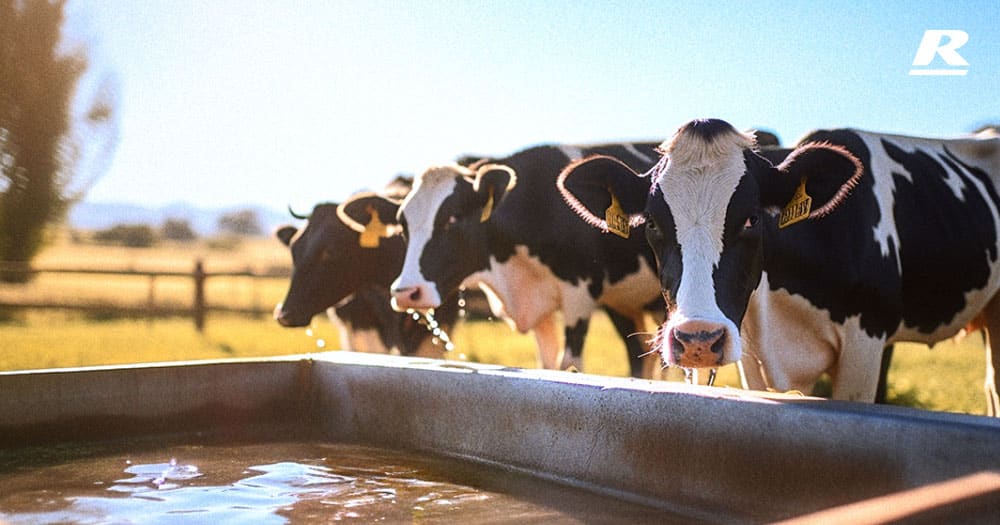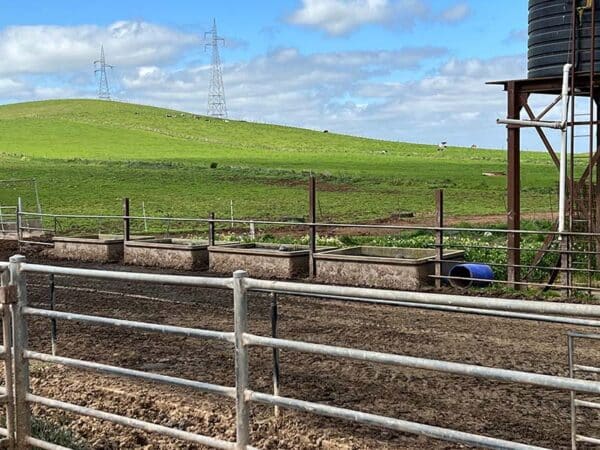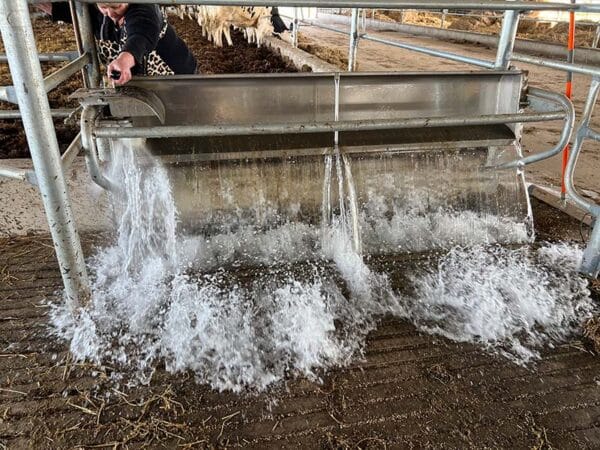Water Quality & Dairy Stock
With warmer weather just around the corner, we need to consider the cows’ changing needs to keep them healthy & productive.
- Water is an essential requirement for dairy stock, which we can take for granted and therefore pay little attention to.
- Good quality water may be defined as clear and colourless, with low total solids, and no disease organisms, pesticides, undesirable odours, flavours or gases.
- Livestock lose water in urine, manure, milk, sweat & respiration and therefore must have 24-hourly access to large quantities of good quality water.
- Research indicates that when cattle are provided with high quality water, they will:
- drink more
- eat more
- produce more and gain weight quicker
- Water needs are dictated by kgDM intake and, because milk is 87% water, daily milk production.
- Intake of water increases with warm weather and can exceed 200 litres/day for large animals in extreme heat and humidity.
- Cows will drink less when only poor quality water is available. This can lower water intake to below daily needs, leading to a drop in feed intake, milk production, Body Condition Score, fertility & dehydration.
- Water quality for livestock is commonly affected by salinity, and the presence of water contaminants such as blue-green algae, organic material (dead plant material & manure), heavy metals and chemicals.
- Water quality does not stay constant. It can vary from season to season and needs to be monitored regularly.
- By observation, you may be able to detect troublesome levels and changes in some aspects of water quality, including colour, odour, iron staining, turbidity and presence of algae at problem levels.
Regular monitoring allows you to take remedial action before too much damage or loss of production occurs.
- Most of the chemical changes to water quality cannot be detected by eye or smell, but need laboratory analysis. Unless this testing and continuous monitoring is in place, a build-up in salinity (for example), will first show itself in lower intake (which is difficult to recognise) and then reduced production.
- Some groundwater supplies in Victoria have been found to contain high levels of chemical contaminants, such as arsenic, which can cause illness in people or animals who drink the water. Some salts that occur naturally in water, including sulfate and nitrate, can be harmful if they are present in large quantities. These can occur when bores are shallow.
- Water testing should be done through a NATA accredited lab.
- According to Dairy Australia, there is no thoroughly researched, universally agreed set of recommended acceptable water quality levels specifically for dairy cattle. However, refer to this link for a guide.
Practicalities
- Good quality water should be provided to dairy cows within an hour of milking to replace the large amount of water lost in milk
- Troughs should be cleaned out annually. When purchasing new troughs, look for those with a bung in the bottom, to make trough cleaning easier. On a recent farm visit, Lynette Greenwood demonstrated her new ‘tipping trough’, which enables regular & easy emptying, cleaning & refilling
- Your RSF Account Manager will be able to provide you with water testing information.
To find out more about the best animal feed or health management strategy for your herd, give us a call and have a chat to one of our nutritionist on 1300 REID FEED or enquire here >
Author
Joy Coulson
Nutrition & Sales Account Manager
SW Victoria


